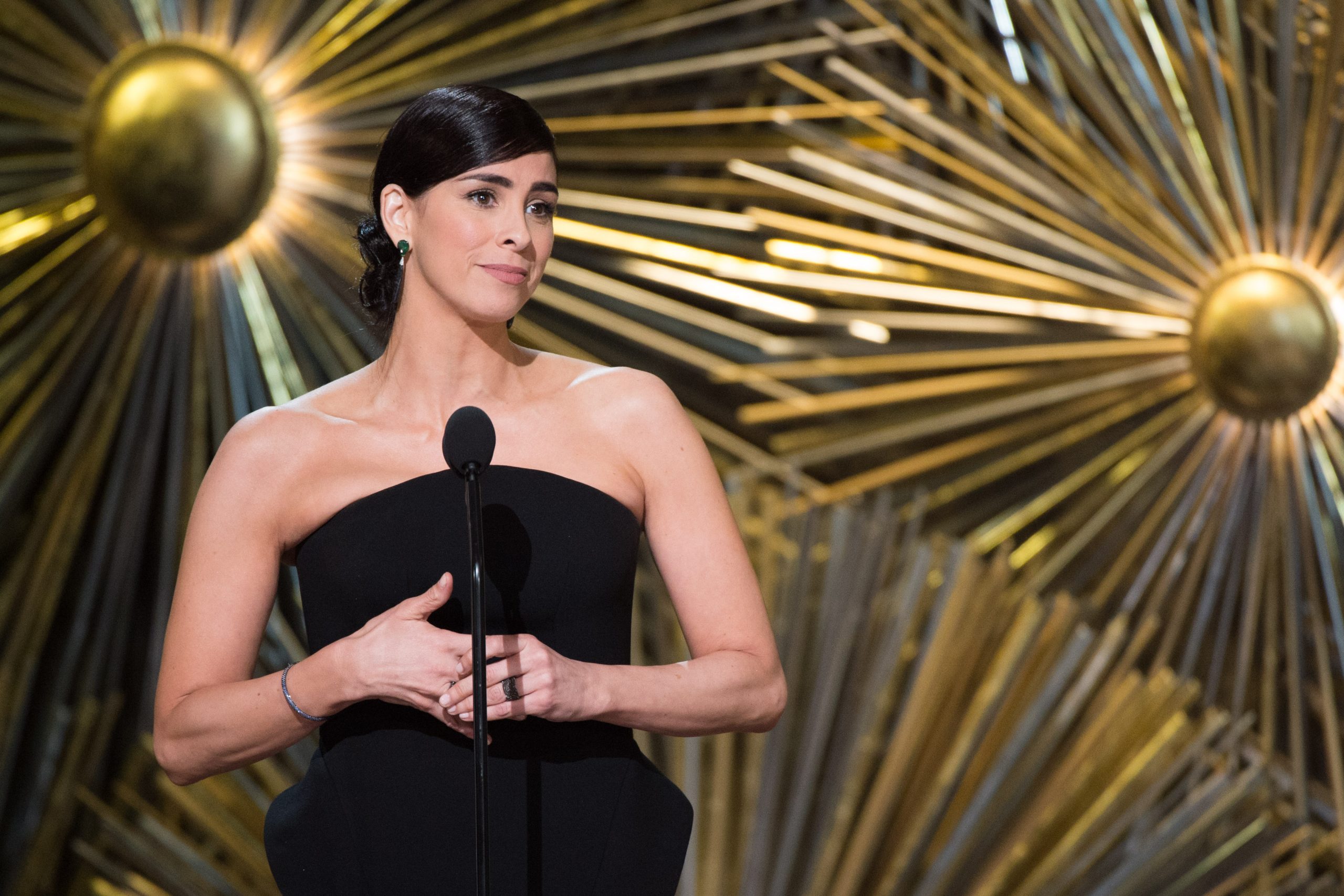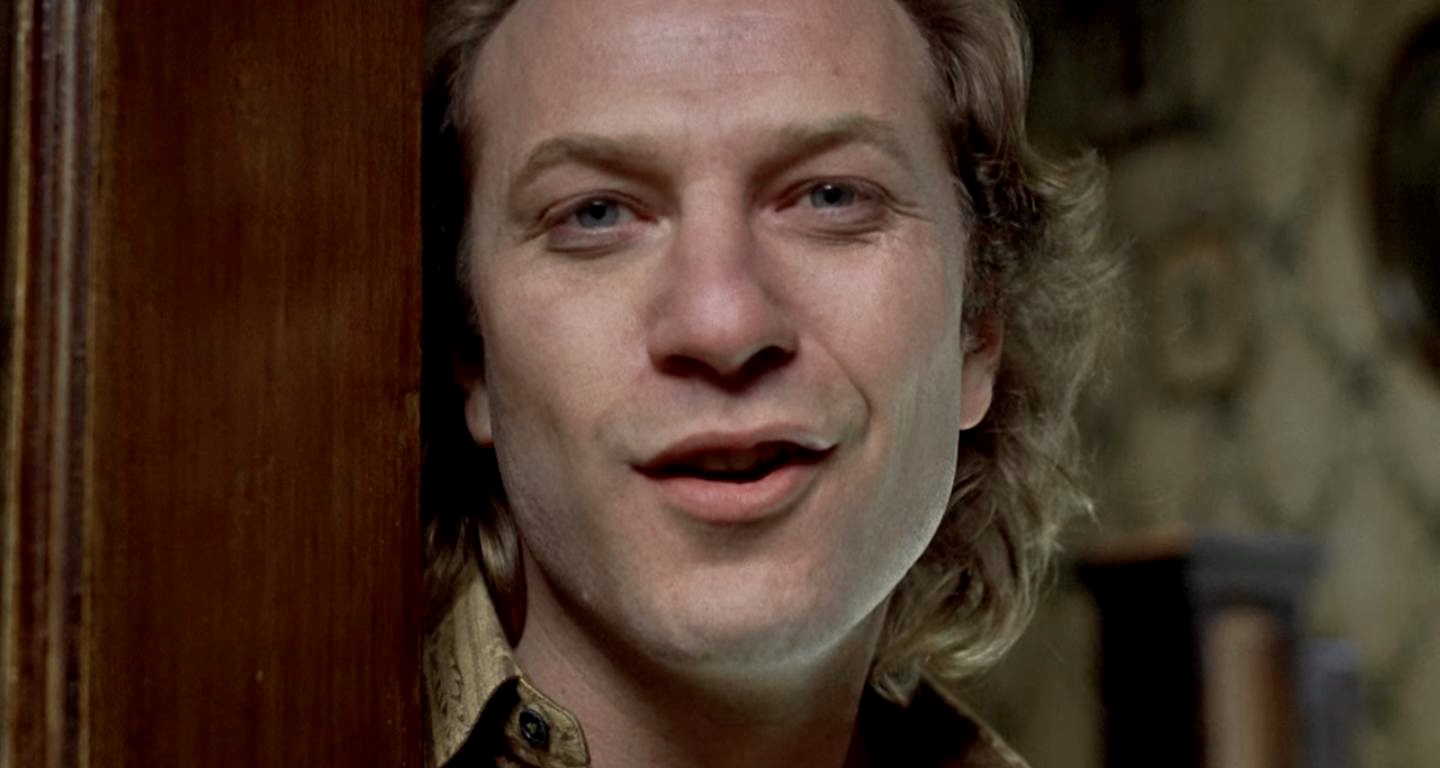
In her recent podcast, Sarah Silverman commented about the recent casting of Kathryn Hahn as the late Jewish comedian Joan Rivers.
Speaking on her podcast, the comedian remarked:
“There’s this long tradition of non-Jews playing Jews, and not just playing people who happen to be Jewish, but people whose Jewishness is their whole being. One could argue, for instance, that a gentile playing Joan Rivers correctly would be doing what is actually called ‘Jewface.’”
Silverman says that Jewface “is defined as when a non-Jew portrays a Jew with the Jewishness front and center — often with makeup, or changing of features, big fake nose, all the New York-y and Yiddish-y inflection.”
More often than not, non-Jewish actresses keep getting cast as Jewish women in film and TV. If it’s not okay for other ethnicities, why is Hollywood okay with this happening to Jews? Honestly, there’s been a larger conversation taking place about this in Jewish circles. I spoken with Jewish actors who tell me frequently that they lose out on Jewish roles because they look too Jewish. Unfortunately, Hollywood isn’t listening. Enough is enough! Let Jewish actors have a chance to play Jewish roles. It really can make or break a film. I touch on it below but the casting of Felicity Jones kept taking me out of On the Basis of Sex.
Last year’s Mank is a strong example of casting non-Jews as Jews. It’s all over the film! Never mind my problems alone with just the mere casting of Gary Oldman. Both Mankiewicz brothers end up being portrayed by non-Jews as is the case of the many classic Jewish moguls, filmmakers, and screenwriters appearing in the film. I didn’t touch on the casting practice in the film but in all honesty, I regret not doing so.
What follows below is something that I first wrote and pitched in 2018 albeit it with some revisions. If it comes off as Ashkenormative in nature, that’s because of how I grew up. The following doesn’t really take into account the larger conversation taking place since it was written. If you want a piece on that, I wrote about the “All Jews are white” line last year. While the pitch was accepted, it never saw the light of day. Until now. I highly agree with Sarah Silverman when it comes to these casting practices. If we’re not okay when it happens with enough races/ethnicities. why are we okay when it happens to Jews?
***
Growing up, I always thought actor Charlton Heston was Jewish because he had portrayed the iconic Hebrew prophet in Cecil B. DeMille’s classic but problematic film, The Ten Commandments. I could not have been more wrong.
Flash-forward so many years later and going into the 2018 press screening, I was naturally excited to see Adam Driver portraying a Jewish police officer in BlacKkKlansman. There’s just one minor problem—he’s not Jewish. I never bothered looking up the actor on Wikipedia as I just naturally assumed he was Jewish due to his having been cast in Girls and playing one of four Jewish siblings in This Is Where I Leave You.
Based on the book, all of the main Jewish characters in This Is Where I Leave You are played by non-Jewish actors with the sole exception of Corey Stoll as Paul. It’s a great example of sacrificing authenticity for bankability at the box office. I left the film thinking that they didn’t do justice to the book.
Producer Samuel Goldwyn was quoted in The Jew in American Cinema as having said, “You can’t have a Jew playing a Jew, it wouldn’t work on screen.” This dates back to when Counsellor-At-Law (1933) was being adapted for the big screen from the Broadway production. Replacing actor Paul Muni in the role, John Barrymore added what were described as mannerisms that he felt were “typically Jewish.” William Wyler directed the film but had some problems with Barrymore’s take on the role. In Goldwyn wanting to downplay the ethnicity of an actor and cast a non-Jew in the role, it ultimately hurt the film. It’s the same line of reasoning that led to Frank Sinatra being cast in Guys and Dolls instead of Sam Levene. The latter originated the roll on Broadway but didn’t have the same bankability at the box office.
In both versions of The Jazz Singer, the role of the cantor went to non-Jews—be it Warner Oland or Laurence Olivier.
Is there a larger theme of non-Jews passing as Jewish? When an actor gets cast as a Jewish person so many times, I naturally assume they are Jewish. It’s even worse when they change their name so as to get better job opportunities because people often think they’re Jewish. Yes, people do this.
Take a look at Quiz Show. The Oscar-nominated picture stars actor John Turturro as Herb Stempel. Stempel’s Jewish identity is central to the core of the film.
In 2018, Disobedience was released. The film stars Rachel Weisz and Rachel McAdams as a pair of lesbians in an Orthodox Jewish community. The problem with casting McAdams isn’t just that the character isn’t a convert but that you can spot her not looking Jewish from a mile away. No wig or makeup can change the fact that McAdams ultimately is unable to pull it off. Never mind the fact that the film didn’t feel harsh enough in its treatment of Orthodox LGBTQ Jews (I have personal experience in this department) but to cast a non-Jewish actress as an Orthodox Jew is a huge disservice.
According to interviews and press materials for the film, McAdams depended on the book as she was shooting. What the books don’t teach you is what many acting classes don’t teach you: there are so many ingrained nuances in Orthodox Judaism that you can’t easily pick up in a matter of weeks. It’s easier for those of us raised in the culture because it comes natural to us. (2021 edit: In this paragraph, I was coming at this more so from what Jews get taught in Hebrew school, seminary, etc. especially since Friday night dinner requires Hebrew with candle lighting, etc. Also, there’s been a larger conversation taking place since first writing this piece–too much of Jewish conversations are Ashkenormative and that’s something that needs to change and this includes Jewish representations in the media, too.)
We turn from Jews of London to one of the most famous Jews to have come from Brooklyn in Supreme Court Justice Ruth Bader Ginsburg. Originally, Natalie Portman was set to depict the Notorious RBG. Unfortunately, she had to pull out and Felicity Jones was cast in her place. The Oscar nominee couldn’t pull it off in the role. If the trailer wasn’t enough, her performance kept taking me out of the film. Felicity Jones is unable to capture Ginsburg’s Jewish essence or appearance. What I hear is more of Boston accent than that of the quintessential Eastern European Jewish accent that many Jews grew up with in New York. Portman would have crushed the role. Alas, it wasn’t meant to be.
Woman in Gold featured Helen Mirren and Ryan Reynolds as Maria Altmann and Randy Schoenberg. The film was critically panned. Personally speaking, I thought about not including this one as I’m too close to the film due to having mutual cousins with Randy. I see this as one of those films that needed bankable names to get made. Were there Jewish actors that could do it? Sure there are. The question is whether what we know now played a role in casting.
The Marvelous Mrs. Maisel stars Rachel Brosnahan as a Jewish comedian. The actress is one of those who can pass as Jewish. I naturally assumed she was Jewish until I did my research and learned she was not. In watching the show, I had a major problem in their portrayal of Jewish converts and said as much when I reviewed season 2.
Schindler’s List stars Ben Kingsley as Jewish account Itzhak Stern. The film is a cinematic masterpiece and I rewatched it back in December 2018 following the Blu-ray release. Was Steven Spielberg unable to find a Jewish actor for the role?
Twice, Daniel Craig has taken on Jewish roles, whether it was a Mossad agent in Munich or a Jewish resistance fighter in Defiance. Both times, I had a very hard time buying his character’s Jewishness because of Craig’s features.
In casting non-Jewish people as Jewish, they can bring down a film altogether. There may be the acting is acting argument but at the end of the day, one’s features also play a role and no amount of makeup can overcome this.






